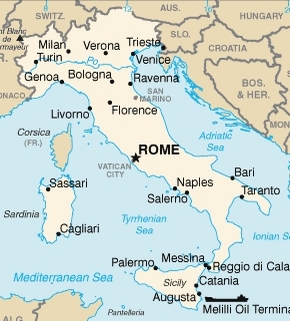On March 2, Italy's political crisis ended as rapidly as it had begun when the Italian parliament reconfirmed Romano Prodi as the country's prime minister. By obtaining majority backing in both the Chamber of Deputies (by 342-253) and the more closely divided Senate (162-157) -- Italy's lower and upper houses of parliament, respectively -- Prodi prolonged the tenuous life of his center-left governing coalition. The previous week, Prodi's coalition government lost a key foreign policy vote in the Senate after the defection of two Senators resulted in the government's falling just short of the necessary majority in that body. The immediate subject of the vote was a proposal to provide additional funding for the almost 2,000 Italian troops serving in Afghanistan as part of the NATO-led International Security Assistance Force (ISAF). Their mission has become increasingly controversial after Italian troops withdrew from Iraq last year. Although the ISAF has received an explicit U.N. Security Council mandate, the fact that it is run by NATO and dominated by the United States has made the mission unpopular among some Italian leftists and pacifists. In a move that apparently backfired, the ambassadors of six other ISAF-participating countries published an open letter calling on Italians to provide continued support for the mission. The Prodi government's decision to support a commitment made by the previous government of Silvio Berlusconi to allow the United States to enlarge its military base in the northern Italian city of Vicenza has also become a subject of domestic controversy. Many leftists have long opposed the base as an unwelcome American military presence on their soil. Recent revelations about CIA counterterrorist operations in Italy have reinforced concerns about unwarranted foreign involvement in the country's domestic affairs. Shortly before the government's collapse, an Italian judge ordered a trial of 25 suspected CIA operatives for the alleged kidnapping and forced rendition to Egypt of an Islamist cleric living in Milan in 2003.
Prodi Returns, But Still Faces Tough Vote on Afghanistan Mission

